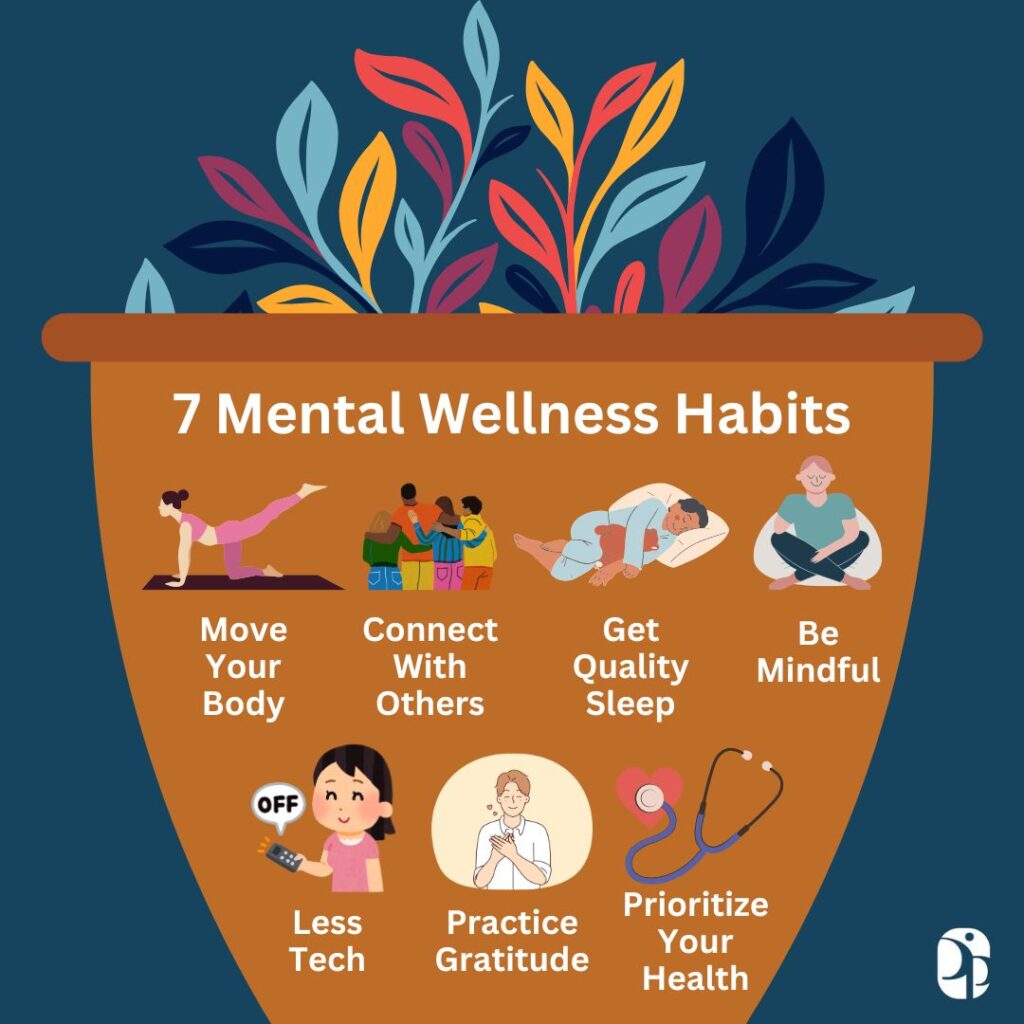Welcome to January, aka mental wellness month! In honor of this, we will look briefly at the historical focus on mental illness to modern prevention through mental wellness practices. To begin, consider common responses to problems in nearly all fields. Early efforts are usually focused on finding ways to fix them:
- People are dying of cancer, how do we treat it?
- People are unhoused. Open more shelters.
- Students aren’t feeling connected on campus. Host more events.
- Students are struggling more with mental health issues. We need more counselors.
But, in response to every health concern, social justice issue, or public health crisis, eventually someone says, “These interventions are great but, is there a way we can get upstream a bit? Is there a way to prevent this suffering before it even begins? Then, the questions start to sound more like this:
- People are dying of cancer. What is causing the cancer?
- People are unhoused. How can we create more affordable housing?
- Students aren’t feeling connected on campus. Is there a way to help them connect before they arrive?
- Students are struggling more with mental health issues. Let’s teach them about preventive mental wellness practices.
The last one is our focus for today.
Historically, much of the study on mental health has been on the diagnosis and treatment of mental illness. Admittedly, in the early 1900s, preventive terms like “mental hygiene” began to emerge. However, it was not until the latter half of the 1900s and early 2000s that researchers such as Dr. Martin Seligman (the “father of positive psychology”) began to actively research further “upstream” to learn about the attributes, habits, and practices of mentally well people.
It’s important to remember that many mental health challenges are biologically based and often benefit from medical and/or psychological intervention. However, with the help of Dr. Seligman and many others who have researched “upstream”, we can now identify practices that help prevent and/or reduce the stigma and suffering of mental health challenges. As we begin the year, we hope these practices can make the year ahead a more mentally enjoyable experience!

7 Preventive Mental Wellness Habits
- Move your body. It doesn’t matter how, simply that we move. Walk, run, yoga, hike, classes, it all works. And, it will be more likely to happen if you find something you enjoy doing!
- Sleep. Getting quality sleep is a difficult challenge for many people. For those who struggle, routine, quality sleep hygiene, and removing stimulants (drink or technology) can be helpful.
- Connect. Make human connection with at least one or two people a priority. If you don’t have any close folks yet, look for organizations or clubs that feature one of your interests and you may find someone(s) there!
- Reduce input. Our brains were not designed to be continually processing outside stimuli. Turn off your phone, the television, and the radio too, and learn to incrementally embrace silence. You’ll be amazed at what your brain can do on its own when it has a chance!
- Practice gratitude. Our brains are hard-wired to give more attention to threats. It takes an intentional effort to help our minds feel safe by naming the good, true, praiseworthy things in our lives to balance the challenges.
- Be present/mindful. It is hard on our brains to consistently think about the past or the future because we have very little control over those periods. But, we can be in control of our awareness and interaction with the present which helps our brains feel safer and more in control.
- Prioritize your health. You get one body. Figure out what your baseline health measures are, find out if anything is amiss, and see if there are ways to help yourself feel better so you can enjoy your life more.
Mental wellness is an active, intentional practice. And, while it can’t prevent all mental challenges, it can certainly help us feel more proactive and possibly prevent increased suffering. When you are better, we all are better!
Published January 13, 2025 by Anne Rulo, Author, Speaker, Therapist. www.annerulo.com. FB/IG/Twitter @annemrulo
